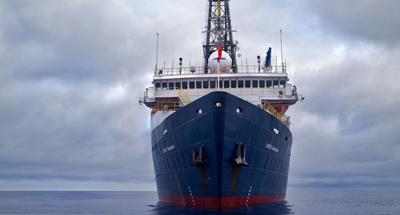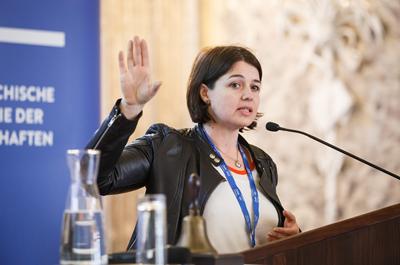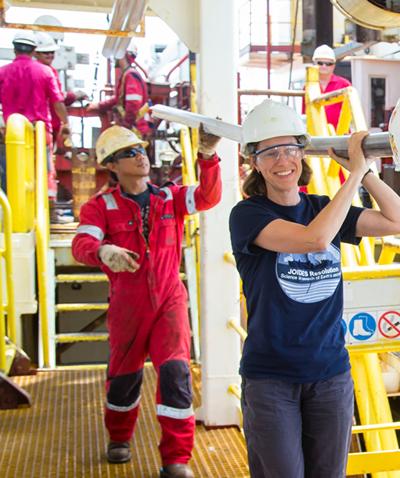UK renews membership of Scientific Ocean Drilling with continued major investment from the Natural Environment Research Council

Scientific ocean drilling, deep subsurface coring of the sediments and rocks below the seafloor, is arguably the most successful enduring international scientific collaboration.
Over the last 50 years, scientific ocean drilling has provided proof for tectonic theory, key observations on the formation and subduction of the great tectonic plates, provided essential stratigraphies for energy exploration, developed the science of paleoceanography-climatology, highlighted and measured the rates of extreme climate changes, probed the limits and origins of life, sampled active ore forming systems, and instrumented regions of tsunami generation.
Southampton-based scientists have played influential roles in ocean drilling since its inception with the heroic explorations of Glomar Challenger during the Deep Sea Drilling Project (1968 to 1983) and continued by the Ocean Drilling Program (1983 to 2003) on the voyages of the drillship JOIDES Resolution.
A rebuilt and updated version of the “JR” remains the central workhorse of this large international science community. Since 2003, the IODP (now the International Ocean Discovery Program) involving 23 nations, has operated a range of capabilities in addition to the JR, including bespoke mission specific platforms for coring in difficult to reach locations such as shallow or ice-covered waters, and the major Japanese riser drill ship Chikyu.
SMMI Director, Professor Damon Teagle, who led the renewal of the UK’s engagement in IODP said, “Membership of IODP gives UK scientists access to world-leading environmental science capabilities that are beyond the reach of any single nation and reflect the combined total international investment (>$130M pa). Our membership to IODP via a 10-year commitment from the Natural Environment Research Council (NERC) provides a substantial but relatively modest contribution to the global total. This together with significant enabling funds provides UK scientists access to world-class facilities and the opportunity for the UK’s excellent Earth and environmental science community to guide how these resources are best deployed. Southampton scientists have a very strong record of Research Council funding and high impact science directly resulting from our long-standing engagement and leadership in scientific ocean drilling.”

Southampton-based Royal Society University Research Fellow Dr Rosalind Coggon, who has recently had two multi-£10s of million IODP expeditions scheduled for 2020 and 2021, says “Scientific ocean drilling operates in some of the Earth’s most challenging environments to secure a wide range of otherwise inaccessible samples and observations that are critical to understanding key Earth-system processes."

Professor Lisa McNeill of the School of Ocean & Earth Science, was the first scientist to be Co-Chief Scientist on all three ocean drilling platform types and is presently Co-Chair of the IODP Science Evaluation Panel. Lisa suggests, “The international collaborations developed within IODP allow us to do better and more innovative science. Participation in IODP expeditions and the international linkages made during 2 months at sea are often critical stepping stones for PhD and early career researchers.”
Plans for future scientific ocean drilling beyond the end of 2023 of the current IODP are already afoot. Roz Coggon science co-chair of the recent European ‘PROCEED’ planning workshop (Vienna, April 2019) and invited to be a member of the small team of researchers, will develop on behalf of the very large international science community, a new science plan for ocean drilling for the decade beyond 2023.